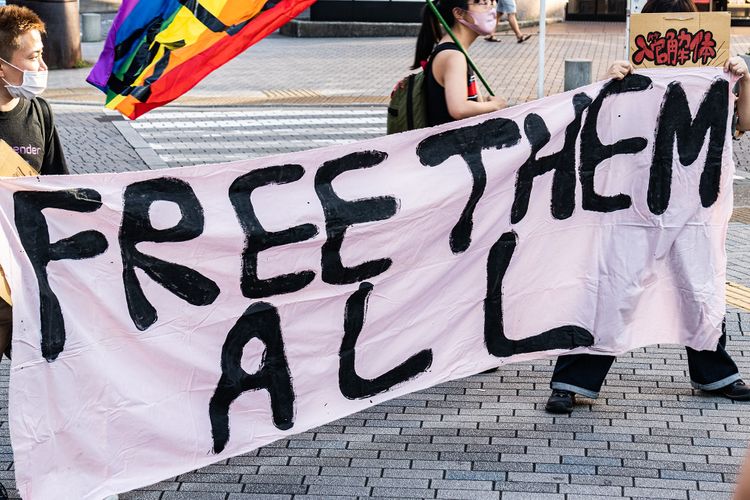Tokyo Immigration Bureau Protest (7/10)
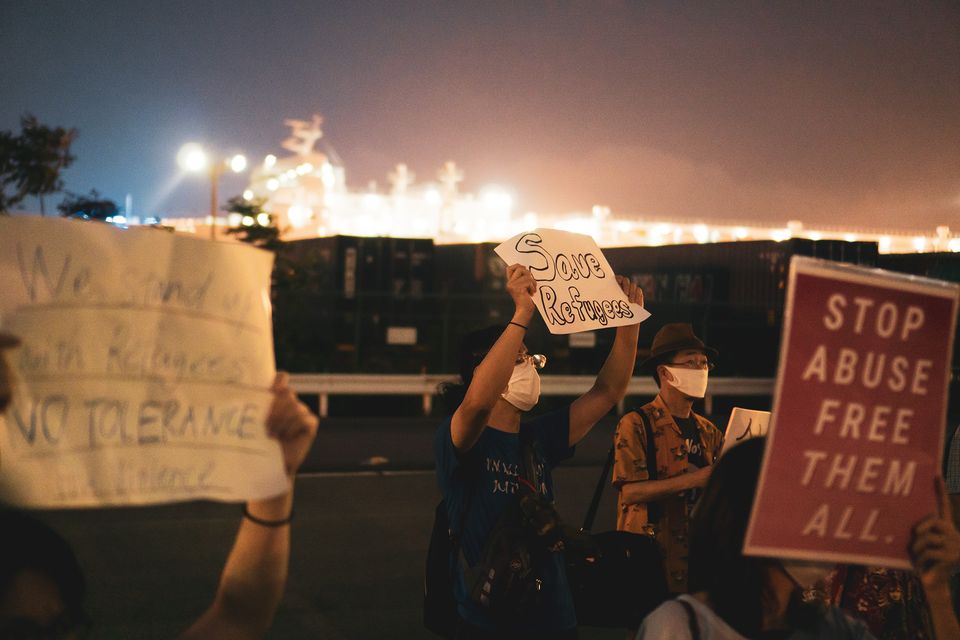
Last Friday evening, I attended a biweekly protest in front of the Tokyo Regional Immigration Bureau in Shinagawa, where I joined dozens of participants armed with placards and megaphones showing support for immigrants and asylum seekers in detention.
The Immigration Bureau's brutalist architecture is imposing – its four wings fan out symmetrically from its center pillar, spanning our entire field of vision as we gathered between them. Yet nothing immediately suggests that it holds individuals against their will above its ground floor offices – both passersby and protesters came in and out of the convenience store across the street while joggers in earphones ran laps around the structure, dodging iPhone photographers and tuning out our chants.

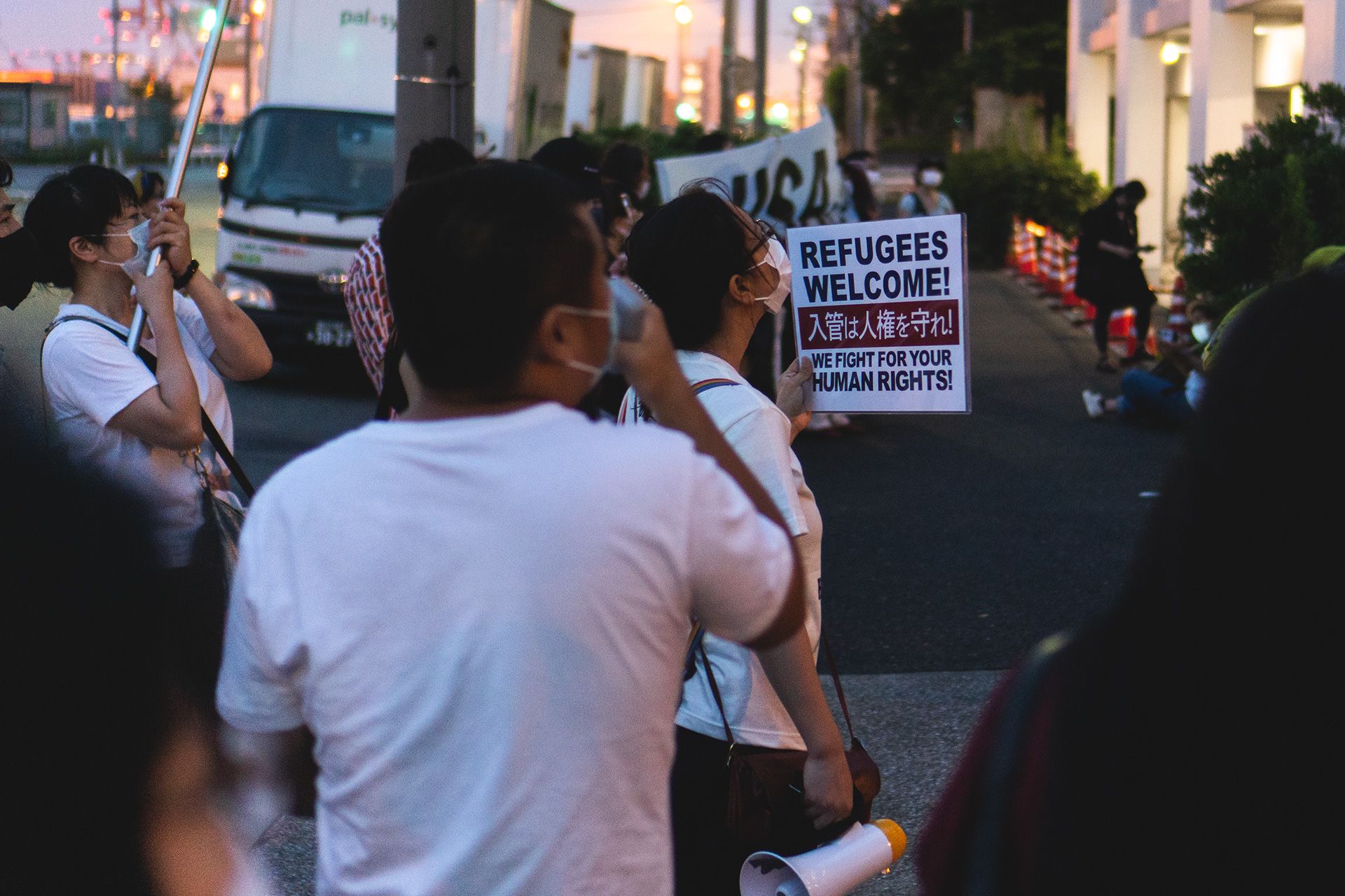
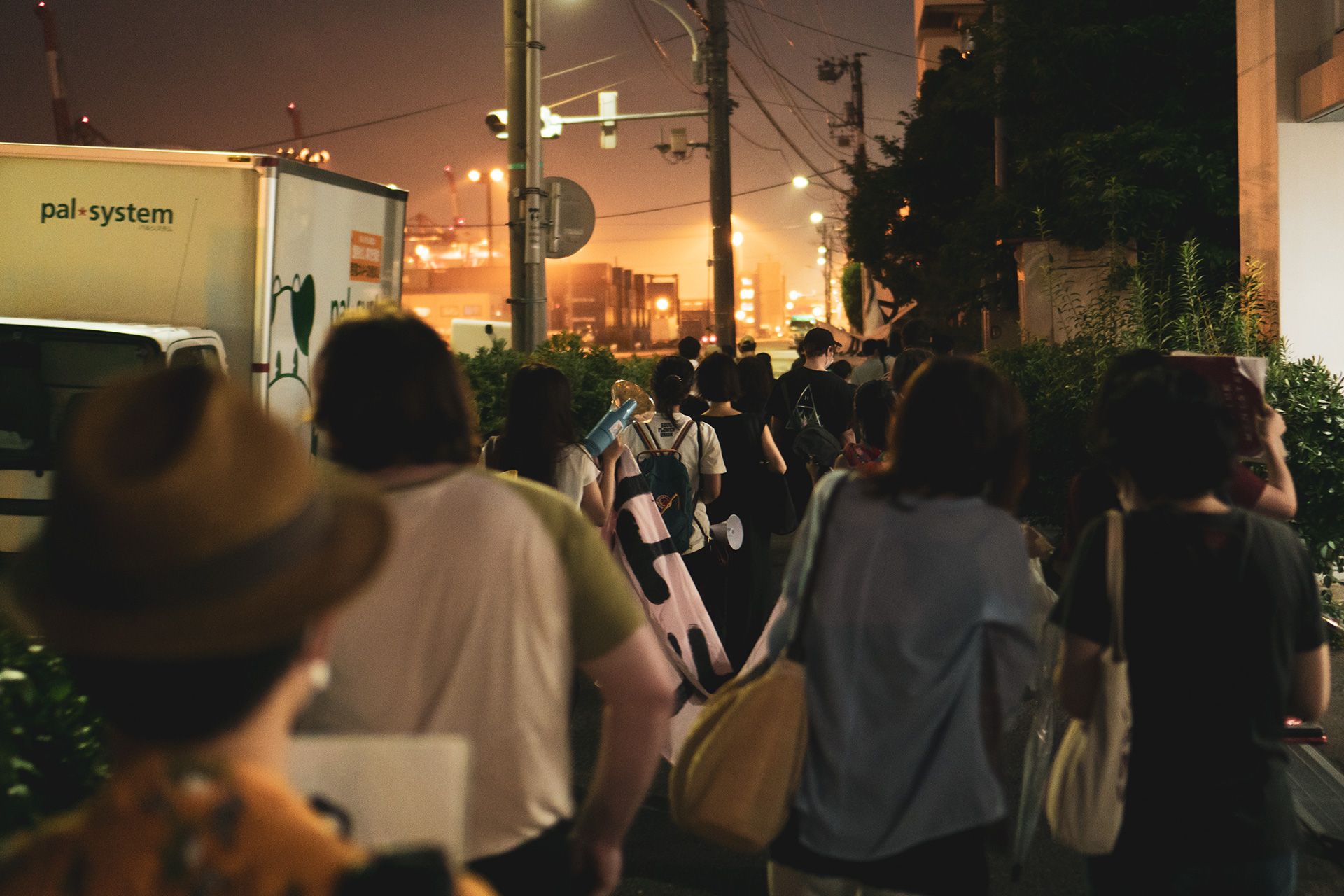
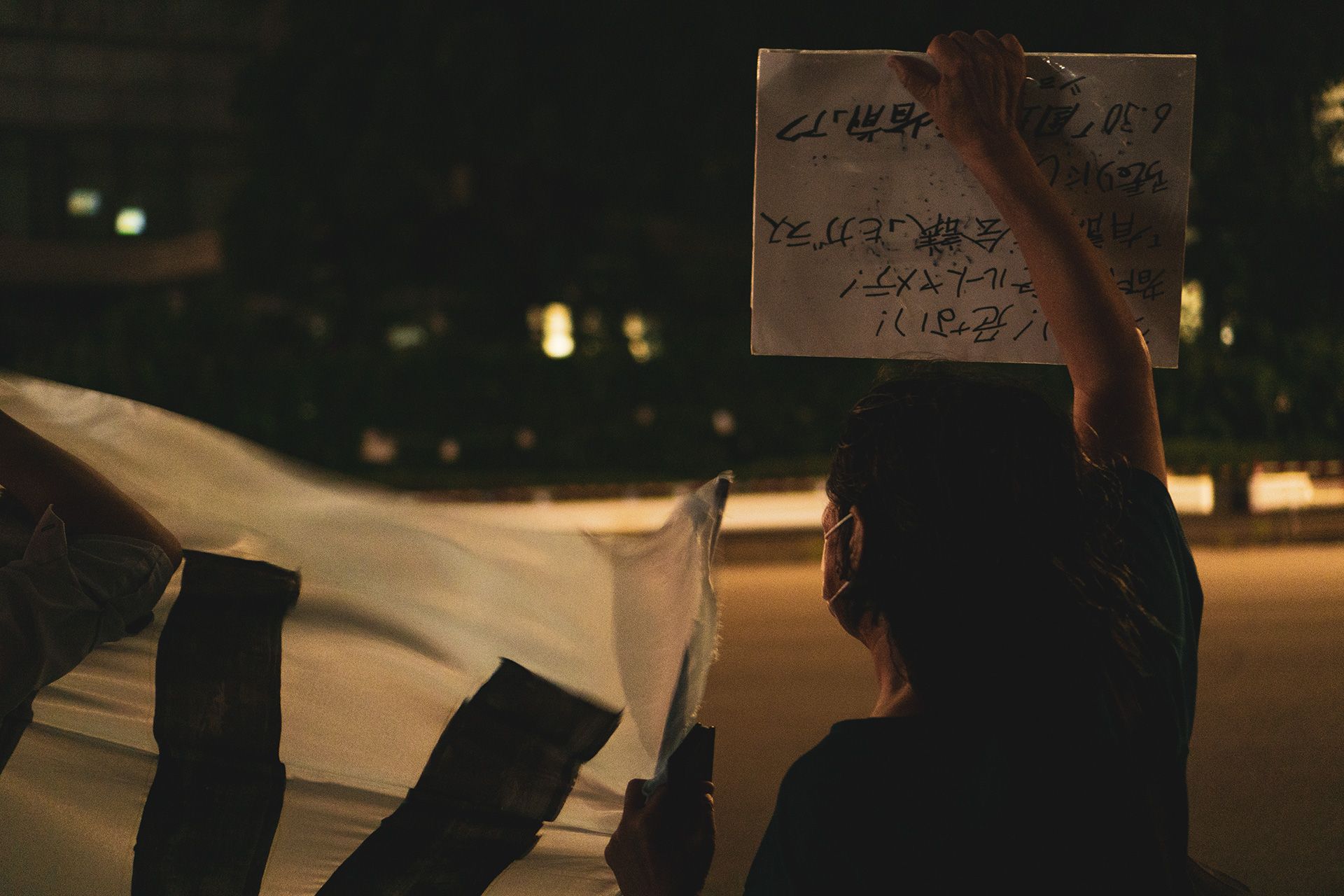
Although some individuals have been released from Japan's detention centers to prevent the spread of coronavirus, many remain captive here and in other facilities. For example, Pato-chan, a trans woman from the Philippines has not only been denied her hormone therapy, but has also been kept in isolation with just two hours of free time each day, staggered so that she can't meet other detainees, while facing constant verbal abuse from personnel within the facility. After one speaker shared Pato-chan's story with everyone gathered, protesters chanted, 「トランス女性は女性だ」(trans women are women) and「トランス男性は男性だ」(trans men are men).
The hourlong protest was split between two sides of the facility so that as many detainees could hear us as possible. Whenever there was a break between our chants, we heard them shout arigatou,「入管やめろ」(stop the Immigration Bureau), and「入管が悪い」(the Immigration Bureau is evil), which we echoed in kind. Among cheers and cries, I heard a man call, "Allahu Akbar" (God is most great), sustaining each syllable as if addressing a crowded mosque for evening prayer.
Through the violence inflicted upon these detainees daily, the Japanese government and Immigration employees demonstrate a complete disregard for their humanity. At the Higashi-Nihon Detention Center in Ushiku, Ibaraki, Brazilian national Andre Kusunoki has been denied shower access as punishment for going on a hunger strike. Even as he has fallen ill and become unable to consume solid food, the onsite doctor refuses to provide him food substitutes. The Friends of Immigration Detainees have since rallied supporters to call, mail, and fax their demands that Kusunoki be freed and the doctor fired immediately. This Friday, a march from the Ministry of Justice in Hibiya to the Immigration Bureau in Shinagawa will also take place in protest and solidarity.
After going on hunger strike at the Ushiku detention center, Brazilian national Andre Kusunoki, who has since fallen ill and can no longer eat solid foods, is being denied shower for 2 weeks under the onsite doctor's instruction, while under observation in solitary confinement. https://t.co/Z567e68jaJ
— M∆shi (@chairobeta) July 13, 2020
コースが決まりました。日比谷公園→新橋駅→大門→芝四丁目→旧海岸通り→海岸通り→東京入管のロングルートです。 pic.twitter.com/uewnKIlz3g
— suzuki #0717入管抗議デモ 17:00日比谷公園霞門 (@dabbawalasuzuki) July 13, 2020
I strive to find other ways to support and serve the detainees, but I believe these protests are one way to acknowledge and celebrate the humanity of those have been trapped, while recognizing and condemning its lack throughout our society and leadership. I encourage everyone to learn how they can become more informed and more involved in setting our friends and family free.





